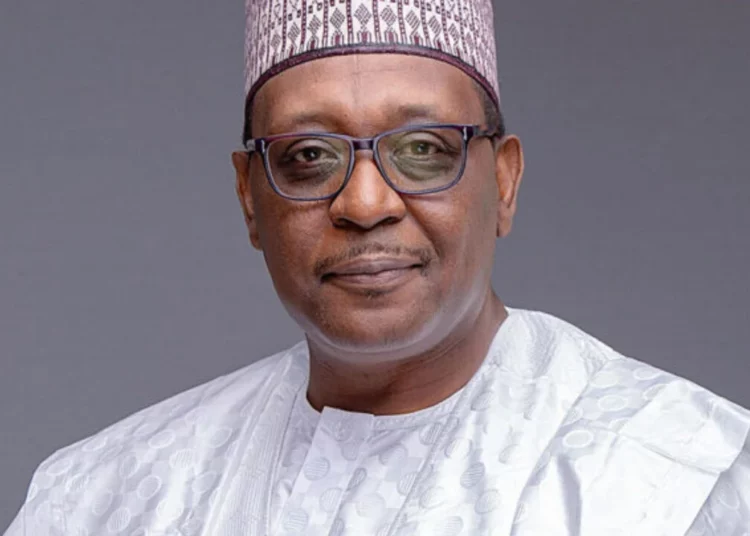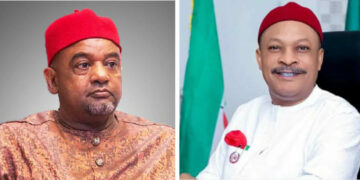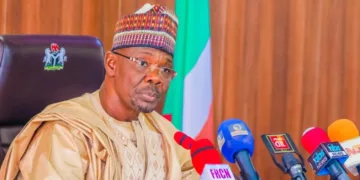As Nigeria joins other nations in marking this year’s World Mental Health Day, experts have raised serious concerns over the country’s mental health landscape, particularly highlighting the extreme shortage of psychiatrists and mental health professionals amid a growing mental health crisis.
Nigeria, with an estimated population of over 240 million, is grappling with severe mental health challenges driven by economic hardship, insecurity, and the ongoing effects of social and economic adversities.
These factors have fuelled a significant increase in mental health conditions across the country. However, according to the Association of Psychiatrists in Nigeria (APN), there are currently fewer than 200 psychiatrists available nationwide. This translates to an alarming ratio of one psychiatrist per million people, far below the World Health Organisation’s (WHO) recommended ratio of one psychiatrist per 10,000 people.
Experts estimate that one in four Nigerians, or over 50 million people, experience mental health issues at some point in their lives. Yet, the inadequate mental health workforce makes accessing care a daunting challenge for millions of Nigerians, particularly those in rural areas.
The president of APN, Professor Taiwo Obindo, painted a grim picture of Nigeria’s mental health situation.
He noted that rising economic challenges such as inflation, unemployment, and the high cost of living and insecurity are pushing more Nigerians into mental distress.
He told LEADERSHIP, “The way things are presently, things have not particularly improved. Rather, one can say things have gotten worse. The multidimensional poverty that people are pushed into is also pushing several people into mental health distress, and those who are distressed are put into the realm of developing a mental health condition.”
However, the lack of access to care means many are not receiving the necessary treatment. According to Prof. Obindo, even though there is an increase in new patients at hospitals like the Jos University Teaching Hospital, many more people cannot afford care. “The cost of treatment, transportation, and medications has gone up, pushing patients away,” he said.
LEADERSHIP checks revealed that the disparity in urban and rural access to mental health services further compounds the problem, as the few psychiatrists in the country are concentrated in urban areas. In contrast, rural areas where most Nigerians live are severely underserved.
Most mental health professionals are based in the cities, leaving primary healthcare centres in rural areas without the mental health services they are supposed to provide.
The expert also highlighted the strong connection between mental health issues and the rising rates of suicide in Nigeria. He noted that 90 per cent of suicide attempts are linked to underlying mental illnesses, with 80 per cent of those cases being attributed to depression.
Despite these troubling statistics, there remains a pervasive stigma surrounding mental health in Nigeria, as people who seek help for mental health challenges are often stigmatised, making many Nigerians suffer in silence.
According to the WHO, mental health is a state of mental well-being that enables people to cope with the stresses of life, realise their abilities, learn well and work well, and contribute to their community.
“Mental health is more than the absence of mental disorders. It exists on a complex continuum, experienced differently from one person to the next, with varying degrees of difficulty and distress and potentially very different social and clinical outcomes.
“Mental health conditions include mental disorders and psychosocial disabilities, as well as other mental states associated with significant distress, impairment in functioning, or risk of self-harm. People with mental health conditions are more likely to experience lower levels of mental well-being, but this is not always or necessarily the case,” WHO stated.
World Mental Health Day is commemorated on October 10 annually. This year’s theme is “Mental Health at Work,” which draws attention to the importance of mental health care.
The federal government took a significant step towards addressing the mental health crisis by signing the Mental Health Bill in January 2023, replacing the outdated 65-year-old Lunacy Act.
The new law decriminalises suicide attempts, protects the rights of individuals with mental health conditions, and calls for the integration of mental health services into primary healthcare. However, the effective implementation of the law remains a challenge, as the integration seems to be on paper.
A psychiatrist at the Lagos State University College of Medicine, Prof. Olayinka Atilola, has also emphasised the importance of incorporating mental health services into workplace health insurance policies.
Mental health is often overlooked in employee insurance plans. Prof. Atilola said mental well-being must be promoted and covered in these policies.
Nigeria’s mental health workforce crisis is not limited to psychiatrists alone. There is also a significant need for more clinical psychologists, psychiatric nurses, and social workers. “We don’t even have up to 1,000 clinical psychologists with PhDs, and most of them are not practising; they are teaching or have left the country. The same goes for psychiatric nurses and social workers,” said Dr Charles Umeh, a consultant clinical psychologist at the Lagos University Teaching Hospital.
The country’s brain drain syndrome has exacerbated the problem, as many trained mental health professionals have emigrated in search of better opportunities abroad.
Prof. Obindo said there has been a continuous decrease in the number of practitioners in the country. “It has been established by colleges that train consultants; out of five trained, three would leave within a year of completing their programme. So, the number of psychiatrists is reducing. Likewise, the number of clinical psychologists, the number of social workers, and the number of psychiatric nurses is also dwindling. Some of them have retired, and a few of us that are around are overstretched,” he lamented.
To address this, mental health experts are advocating for more investment in training and retaining mental health professionals and expanding services to underserved areas.
“If mental health services are integrated into primary healthcare, we can ensure that more Nigerians have access to care, especially those in rural areas,” Prof. Obindo said.





